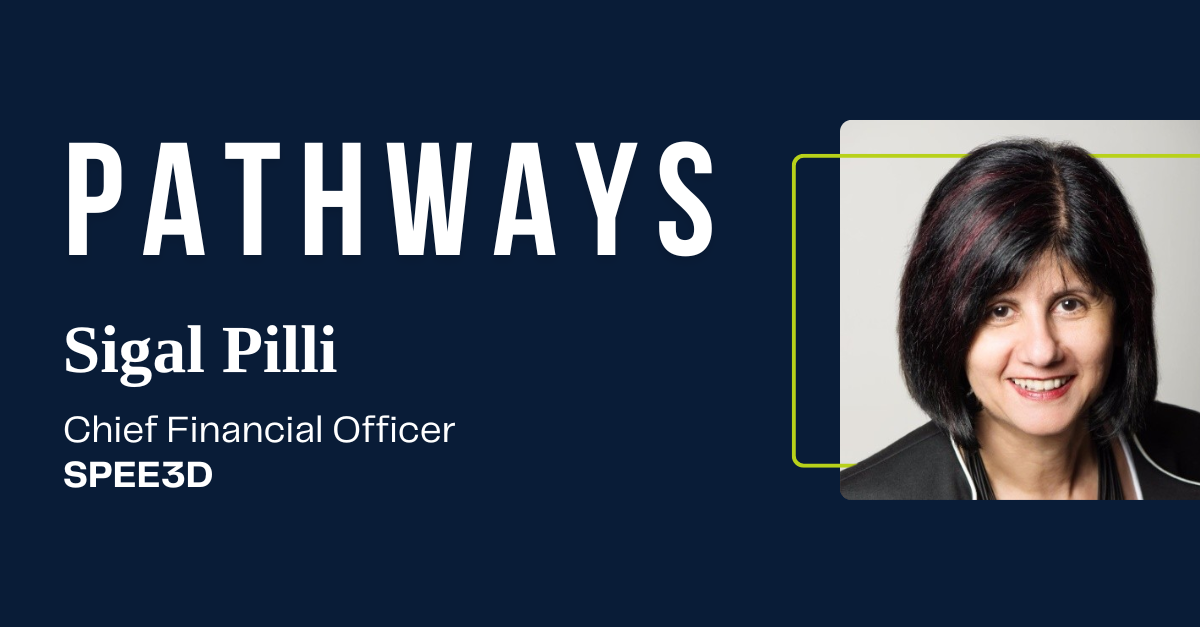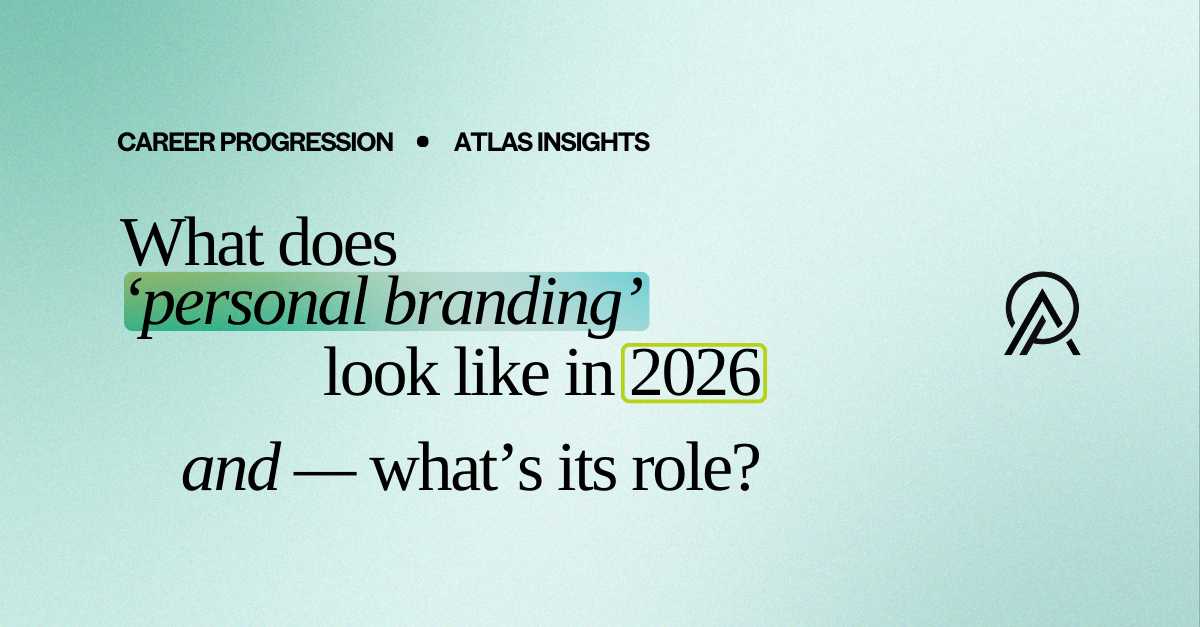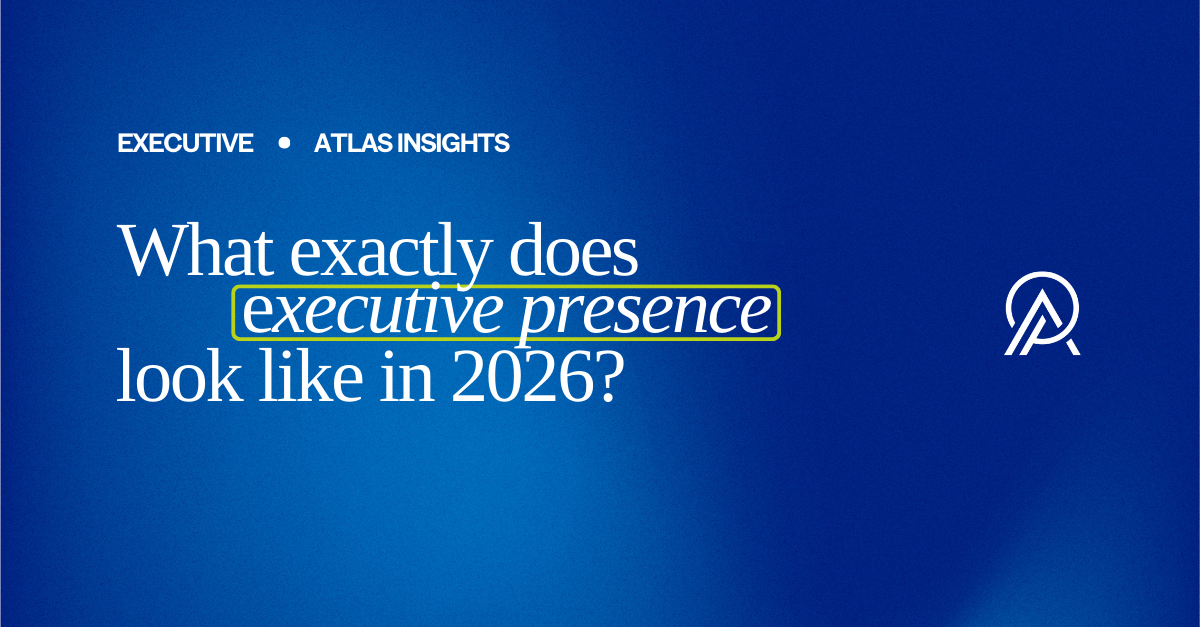With a career spanning audit, manufacturing and tech, Sigal Pilli has built and led finance teams through growth, change and complexity. Now CFO at SPEE3D, she’s applying her broad experience to a business at the intersection of hardware, software and advanced manufacturing. Sigal sat down with Atlas Director, Liam Killen, to share her take on the evolving role of the CFO, scaling with purpose, and why stepping up—ready or not—has been a defining theme throughout her journey.
Liam Killen:
Welcome to another episode of Pathways. I’m joined today by the CFO of SPEE3D, Sigal Pilli. Sigal, thank you so much for joining us.
Sigal Pilli:
Thank you for inviting me. It’s a pleasure to be here.
Liam Killen:
Sigal, today’s episode is all about transformation led by CFOs, and I’d love to dive into your career.
Sigal Pilli:
Sure. I started my career in audit, which provided a solid foundation for learning about businesses quickly—as you have to as an auditor. I then spent about 15 years in manufacturing and another 15 in tech companies. SPEE3D really brings it all together. We have software and hardware development, but also a manufacturing arm to the business.
I came from an audit background, which meant I initially leaned more toward the financial controller path rather than FP&A. But eventually, I took on FP&A responsibilities, and that carried into my next CFO role.
I found myself working in businesses that were growing and constantly changing. That was true in my earlier career, but especially during my time at Envato. Over seven years, we grew from 30 to 500 people. Finance had to evolve with the business—otherwise, you risk becoming irrelevant and not supporting the organisation effectively.
Liam Killen:
Fascinating. And when we talk about the modern CFO, what does being a strategic CFO mean to you?
Sigal Pilli:
For me, being a strategic CFO means thinking like a CEO. It’s not just about cost control and financial oversight—it’s about being deeply immersed in the business, understanding each business unit and its leaders.
It’s about translating financials into operational insights and supporting GMs on their journey. If you truly understand the business, you can have meaningful conversations and bring the financial lens to the table. You start asking: Do we have the right skill sets? Are we investing enough—or too much—in certain areas? The ability to zoom in and out allows you to make a real impact.
Liam Killen:
Absolutely. When you were scaling finance and analytics at Envato, what were some of the key decisions that really made a difference?
Sigal Pilli:
Seven years is a long time in the life of a growing business. What you need when you have 30 people is vastly different to what you need with 500 and global subsidiaries.
A key decision was shifting our mindset from just reporting numbers to delivering insights. We changed our P&L structure to better support not just the CEO and board, but also each GM—helping them connect their decisions and features to financial outcomes and analytics.
We also overhauled our financial planning cadence. When I joined, we didn’t have a formal budget process. We moved from annual budgeting to quarterly forecasting, and eventually to monthly forecasting. This kept things current and allowed us to update the board in real time.
On the control side, as we grew, we had to decentralise expense approvals. Initially, the CEO approved everything. But as the business expanded, we needed more distributed decision-making with clear accountability around who could approve what.
Liam Killen:
That balance between structure and agility is so important. How did you manage that in such a fast-growth environment?
Sigal Pilli:
It’s a dance—and more art than science. It depends on personality, company size, and what the business can afford. You have to be comfortable with imperfection and with the idea that whatever you build today may need to change in a year.
That applies to processes, team structure, even your P&L reporting. At Envato, when the business restructured, I had to restructure the finance team. We moved away from the traditional split between financial control (looking backwards) and FP&A (looking forwards). Instead, we created small, cross-functional teams supporting each business unit—each with a mix of past and future insight.
This gave every GM a single point of contact—a mini CFO, if you will. We had to revisit expense approvals multiple times, rethink credit card distribution, business case assessments, and more. As more people become involved in decision-making, you need stronger structures for consistency.
Liam Killen:
Let’s talk about finance and analytics as a growth engine. How do you embed that into commercial decision-making?
Sigal Pilli:
That’s a topic I was really passionate about at Envato. If you study economics, the first thing they teach is that people are rational—but we know that’s not always true.
When you carry that lens into data analysis, you start to ask: Why is that happening? Why did this result occur? Embedding finance means making “why” and “how do you know?” part of every conversation.
For example: If someone wants to invest half a million dollars into a feature—how do we know it will work? What does success look like? How will we measure it? You implement data-driven decision-making from the bottom up—not by forcing people to use data, but by getting them to want the data.
Envato, being an online marketplace, had tons of data—high volume, low value—and using that data effectively was key. But even in smaller companies, you can do this. Where I am now, we look at the sales pipeline and ask: Why did we win or lose that deal? It’s not “big data,” but it’s still valuable. And it helps us learn and make better decisions.
Liam Killen:
When hiring, what traits do you look for in finance talent who can think beyond the numbers?
Sigal Pilli:
For me, it’s all about capability over specific experience. You can teach someone an industry—but teaching them how to think or how to communicate is much harder.
I look for people who can build trust, think critically, and solve problems. In growing companies, problems never stop coming—so that ability is crucial.
Also, communication is key. Startups often have less experienced teams, so you need people who can explain financial concepts in plain language. I often ask candidates to explain something simple—like accruals versus cash, or tax withholding—as if they were speaking to someone with no financial background. It’s a great way to see how well they translate complex ideas.
Liam Killen:
Let’s talk about leadership. I don’t think we can have this conversation without going back to when you managed your father’s factory at just 16. What was going through your mind, and what did that teach you?
Sigal Pilli:
Honestly? I was just hoping I wouldn’t accidentally burn the place down! I definitely felt like I’d been thrown into the deep end—but I knew it was temporary, so I stepped up.
That experience taught me to say yes to challenges, even if I felt out of my depth. Do your best, and if you fail, at least you tried.
It also taught me how to work with people from all walks of life. I was still in high school and suddenly dealing with factory workers, suppliers, and delivery people—very different from my school environment.
I had to build trust quickly—with suppliers and customers who didn’t know me, and whom I didn’t know—so they’d believe in the promises I made on behalf of my father. That was a real lesson in credibility and communication.
Liam Killen:
That’s such a unique experience, especially at 16. What did it teach you about grit and finding a way forward?
Sigal Pilli:
You just keep going. My kids used to hate it when I’d say, “Failure is not an option.” They’d say, “That’s ridiculous—of course it is!” And they’re right—it is an option. But my point was: give it everything. Try your hardest.
Being transparent, being honest when you don’t know something—it goes a long way. People will help you if you’re open. I knew nothing about sewing clothes. But I leaned on the people around me, asked questions, and figured things out as best I could. Leveraging the team was essential.
Liam Killen:
Well, Sigal Pilli, thank you so much for joining us. We really appreciate your time and insights.





